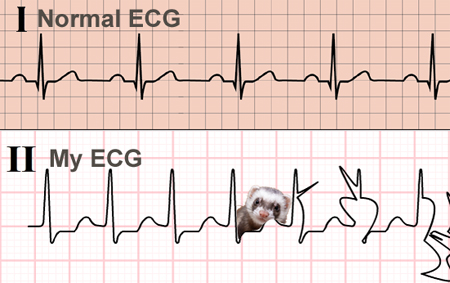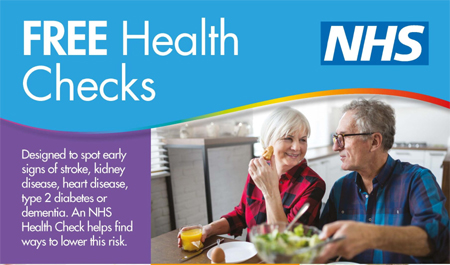AFter All this Time
One tenet I live by is this:
The less you see of doctors and lawyers, the better off you’ll be.
Rest assured I am not advocating evading these professions, simply avoiding them. If you need to interact with a lawyer or doctor, by all means, seek one out. But, overall, the fewer visits you are obligated to make to either, the happier you’ll be. This philosophy has served me well, until circumstances conspired to put me in the firing line of an alarming number of medical interactions.

The first was on day 102 of my 100-Day Cough (yes, that is a real thing) which, helpfully, reaffirmed my belief.
“You’re new to this practice?” the doctor asked, staring quizzically at his screen.
I assured him I was not, so he scrolled a bit more.
“Oh, I see. Your last visit was in 2014?”
I appraised him of my philosophy, and he prescribed a course of anti-biotics and a blood test. The antibiotics did the trick (finally; I was getting tired of coughing all the time) and the blood test came packaged with an X-Ray and blood-pressure reading, all of which came back normal, except …
“Your cholesterol is a bit high,” the medical professional told me over the phone when the results came in. “Nothing to worry about, and I can prescribe medication for that.”
(My narrative must deviate to a bit of backstory here; I apologize for this and assure you I would not do this unless it was absolutely necessary.)
About a week earlier, I had been left without adult supervision while my wife went to visit friends. For lunch I had a fried sausage sandwich, complete with melted cheddar. I texted my wife what I was up to, and she told her friends, who remarked, “Golly, his cholesterol must be through the roof.”

Now, prior to this diet-shaming being reported back to me, I myself began to think about my food choices, not in a health-related sense, but recognizing that I was in a rut. Left to my own devices, a frying pan was my go-to cooking implement, which seemed unimaginative, and while I was willing to maintain an unhealthy diet, I was not willing to be thought of as unimaginative.
Fortunately, this was easily remedied, as my wife is happy grazing in a pasture, so I simply came along with her, segueing seamlessly into a more varied, less deep-fat-fried, diet with little difficulty.

Therefore, when offered drugs to combat a not-at-all serious blip in my blood-levels, I responded by asking if a lifestyle change wouldn’t be more appropriate. The man (who turned out to be a pharmacist) seemed taken aback by this but agreed it could work. And a note was put in my medical file labelling me as Drug Resistant.
Unrelated to this is a habit my heart has of occasionally scurrying around in my chest like an excited ferret. This happens once a decade and has been occurring since my 20s. It comes, lasts two or three weeks, then goes, and was therefore something I didn’t concern myself with, until the bout in 2014, which became lively enough for me to seek medical advice.
Long story short: by the time I saw a doctor, the bout was over, and I was 100% healthy again. Passed from specialist to increasingly specialized specialist, they found nothing wrong—even after making me wear a portable ECG (US: EKG) machine for a few days—and released me.
Unrelated to all this was a routine physical exam, which requires a primer on the UK health service: they do not do physical examinations.
[Addendum: Ironically, between writing and posting this essay, I had a medical appointment, and while waiting, I noticed a poster on the wall, advertising FREE NHS HEALTH CHECKS]
Until now, I lived happily without them but, with round-numbered birthdays coming up for both of us, my wife and I decided an MOT might be in order. Knowing the NHS would not provide one, we tried to go private, only to discover private medical insurance won’t get you a routine physical, either. However, my wife discovered a charity set up specifically to provide routine (though thorough) physical examinations. It took six-months to get an appointment, and it came along just after my 100-day cough ran its course and my cholesterol-busting diet kicked in.
The exam went fine. Everything was tickety-boo. The nurse took my blood pressure and listened to my heart and was happy with all that. Then, five minutes later, she hooked me up to an ECG machine, ran the standard test, looked at the read out, and asked in a disturbingly worried tone, “Do you feel all right?”
I assured her I did. She took another reading, and another. Then she sat with me at her desk and showed them to me. Now, I’m no doctor, but I have seen enough Holby City and 24 Hours in A&E to know what a normal ECG looks like, and this was anything but. What transpired was, she had accidentally, and against infinite odds, managed to capture what the specialists from a decade ago had not.

“You need to take these to your doctor,” she said. “Now.”
“Well, I’m sorta busy today,” I said, “and tomorrow is out of the question. Maybe I could swing by on Thursday …”
So, she went to the waiting room, got my wife, and made her promise to get me to the doctor on the way home.
Long story short (gosh, I’m truncating a lot of narrative these days), I feared I would be put on the Specialist Escalation Special again (and, seriously, I don’t have time for that anymore; when I was working, it was a lot easier) but it turned out the doctor, while concerned (“Why didn’t you call an ambulance!”), was quick to make a diagnosis and recommend a solution.
“I see here that you are averse to taking medication,” she said, no doubt looking at the note recently added to my file.
“That depends,” I told her.
“Well, I’m going to prescribe medication to regulate your heart …”
This was both welcome news and a disappointment. I was expecting a pacemaker which, while a bit extreme, would at least preclude taking daily meds.
“… and, because erratic heartbeats can cause strokes, some blood thinners.”
I might be against taking drugs when a change of diet would work better, but betting against having a stroke didn’t sound like a sensible option.
“How long will I have to be on those?” I asked, while trying to digest this unwelcome news which, I was informed, came with the unsettling side-effect of (possibly) making me bleed from my eyeballs.
“Every day, twice a day, until you die.”
She didn’t actually say that, but that’s what she meant.
Strangely, my first thought was about my travel insurance (or not so strangely, as we are heading off on holiday soon).
“Don’t worry,” the doc said, “just tell them you have AF.”
“AF? It’s that simple?”
She affirmed it, indeed, was, gave me a prescription, and I left, after which I called my Travel Insurance people as soon as I could.
“I have AF,” I told them.
“Oh, Atrial Fibrillation. Of course. We’ll put a note in your file.”
And that was that, except every day now, until I die, I have to take two medications: one to regulate the ferret scampering up, down, and sideways in my chest, and the other to keep me from (possibly) having a stroke. But at least I haven’t bled from my eyeballs.
And I haven’t had to see a lawyer in decades.


9 Comments
Barbara Lout Murphy
You are so smart!
MikeH
Aw, shucks. You’re making me blush 😉
Karen Jones
Welcome to the World of Being Over 65 and feeling the effects of:
gravitational pull
smog/cigars….. ;(
The Aging Process
Lack of 85% Dark Chocolate in your “Diet…” (Cures SOOO many things….)
Topped with the English Diet after you survived the Nor’East American Diet!
Keep up the good work!
MikeH
Looking forward to the dark chocolate 😉
Benny Coxhill
Welcome to the tablet club. Next time we meet, Sue can compare AF notes with you.
MikeH
I did wonder if that was what Sue had. Now we can compare symptoms and we can all compare medications. Even Shonagh can join in! Hours of fun 😉
Ted Ropple
I sympathize with your aversion to doctors and lawyers- pretty much my MO as well. Glad you headed this one off!
MikeH
Close one, but no lasting damage 😉 Now to avoid the lawyers.
Pingback: